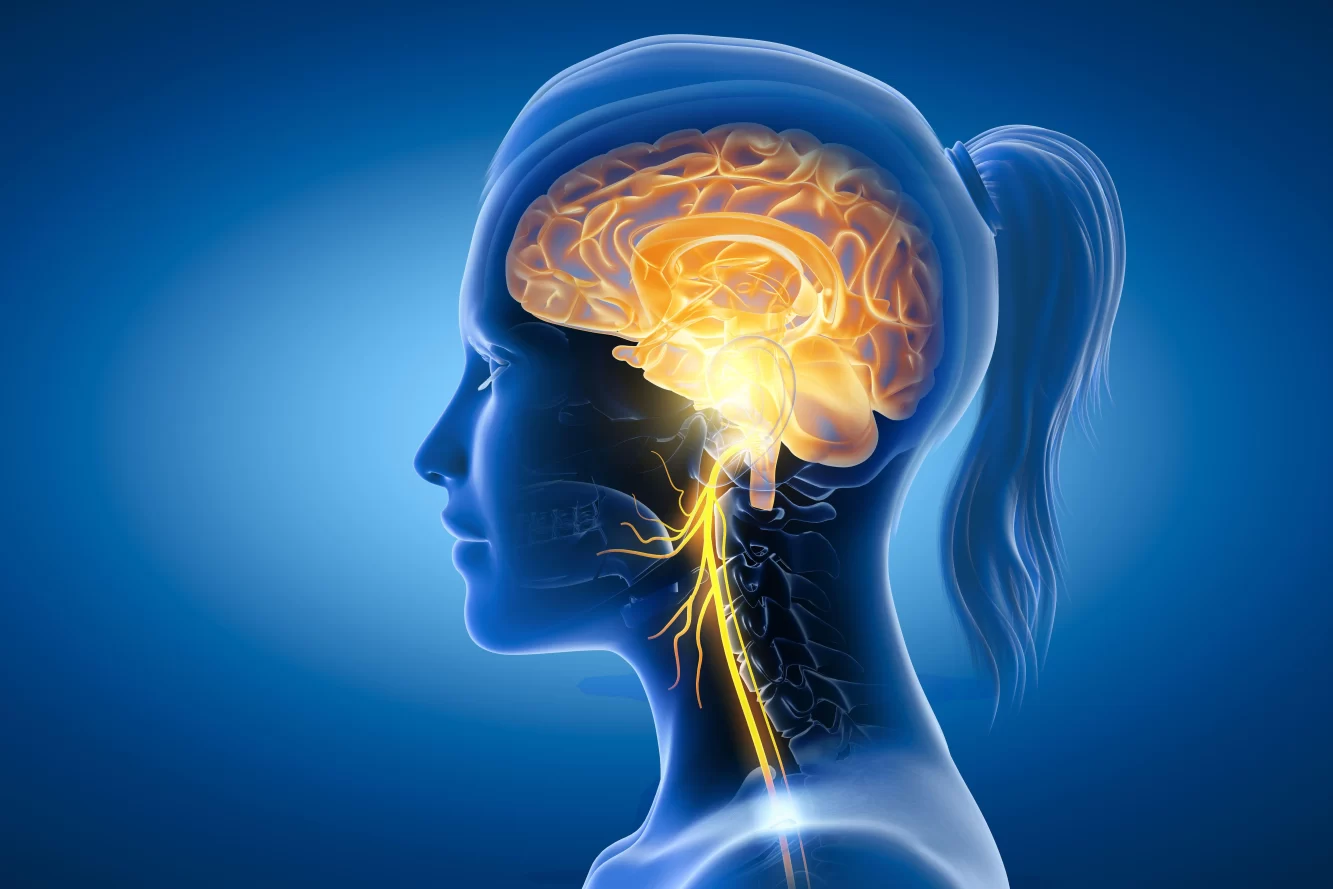The vagus nerve is the longest nerve in our body, running from the brain stem to part of the colon, supplying both our organs and our brain with vital information.
The word “vagus” means wandering in Latin, and the vagus nerve is a wandering cranial nerve that communicates to every organ in our body, especially our gut. It’s also critical part of our parasympathetic nervous system.
Controlling things like our heart rate, digestion, breathing, swallowing, the vagus nerve also affects our mental health. It regulates our inflammatory response, b y alerting the brain to inflammatory responses then releasing neurotransmitters to regulate the response.
Chronic inflammation has been linked to autoimmune disorders and mental health issues. Stimulating it has been shown to reduce stress, anxiety, depression and PTSD symptoms.
Studies show that when this nerve is stimulated we can more easily overcome these mental health symptoms. So even if we feel bad, these feelings can be shorter lived and we can often rebound more quickly.
The vagus nerve is critical in our fight or flight response. It activates the parasympathetic nervous system after we experience stress.
Since the vagus nerve is part of our parasympathetic nervous system, when it gets stimulated it increases what is known as vagal tone; slowing our heart rate and our breathing and calming our nervous system down. Our vagal tone tells us how well our vagal nerve is functioning. Low vagal tone is associated with IBS, mental health issues and metabolic disorders.
In 2010 researchers at the Cleveland clinic found a positive correlation between a high vagal tone and positive emotions and overall good physical health. Modern psychiatry is now making the connection between mental health and gut health. The gut-brain axis is the communication superhighway between the gut and the brain.
So how can we stimulate our vagus nerve and improve our vagal tone? There are many ways that we can trigger our vagus nerve so that we can start feeling healthier and more calm right now:
Cold Water Therapy (Wim Hof method)
By introducing ourselves to the cold we are stimulating our vagus nerve, which calms our nervous system down.
The cold stimulation activates specific neurons through our vagus nerve messaging directly to our parasympathetic nervous system.
Massage and/or Reflexology
Humming
Because the vagus nerve runs along the side of your neck and is connected not only to your vocal chords but also the muscles in the back of your throat – doing these things can act as a simulator for the vagus nerve and increase our vagal tone.
Probiotics
Having healthy gut bacteria improves brain function. It positively changes certain receptors which are responsible for most of the messages being sent in our brain and our nervous system, ultimately reducing our stress hormones. The best way to get probiotics into your diet is using things like yoghurt or fermented foods like kimchi sauerkraut or even Kombucha.the benefits of it being stimulated, by simply sleeping on it.
Therapy not only helps us to understand our feelings, emotions, needs, but the actual act of talking stimulates the vagal tone.
Yoga
Breathwork
Andrea x

